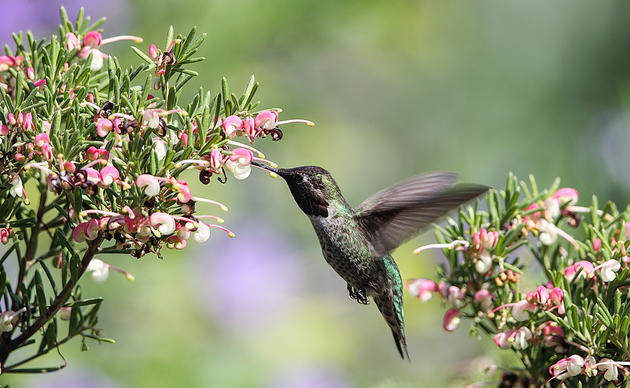Species often repeat each other when in the same geography. This is called codependent evolution and it is the reason, scientists believe, that hummingbirds have long bills and the flowers they feed on nectar from have long corrollas (the inner whorl of floral leaves of a flower). Researchers from Ludwig Maximilian University examined the DNA of Sword-billed Hummingbirds, a South American species that is the only species known to have a bill longer than the length of its body, and the DNA of passionflowers, a striking species that comes in hundreds of varieties. Scientists discovered passionflowers evolved after the hummingbird,10.7 million years ago. From that point on the two evolved together and could be found in the same geographic locations.
From a Scienceline blog post on the study:
But for this particular study, the research team made a more compelling discovery. The scientists sequenced the DNA of the 43 passionflower species to check how they differed; the differences would reveal when they last shared a common ancestor. They found that the evolution toward longer nectar-tubes had happened very rapidly and more than once, too. When sword-billed hummingbirds had been in short supply in the last two to four million years, some passionflower species had quickly evolved to grow shorter tubes that could be pollinated by more birds and bats as well, ensuring their survival.
“That is why it is sometimes advantageous to break the highly specialized relationship with a single pollinator – and the group of long-tubed passion flowers we have studied includes good examples of such evolutionary switches,” said Susanne Renner, a professor at Ludwig Maximilian University a co-author on the study, in a press release.
(Via Scienceline)
Sword-billed Hummingbird photo by Francesco Veronesi and passionflower photo by Tanakawho
By Daniela Ogden
Monthly Giving
Our monthly giving program offers the peace of mind that you’re doing your part every day.




